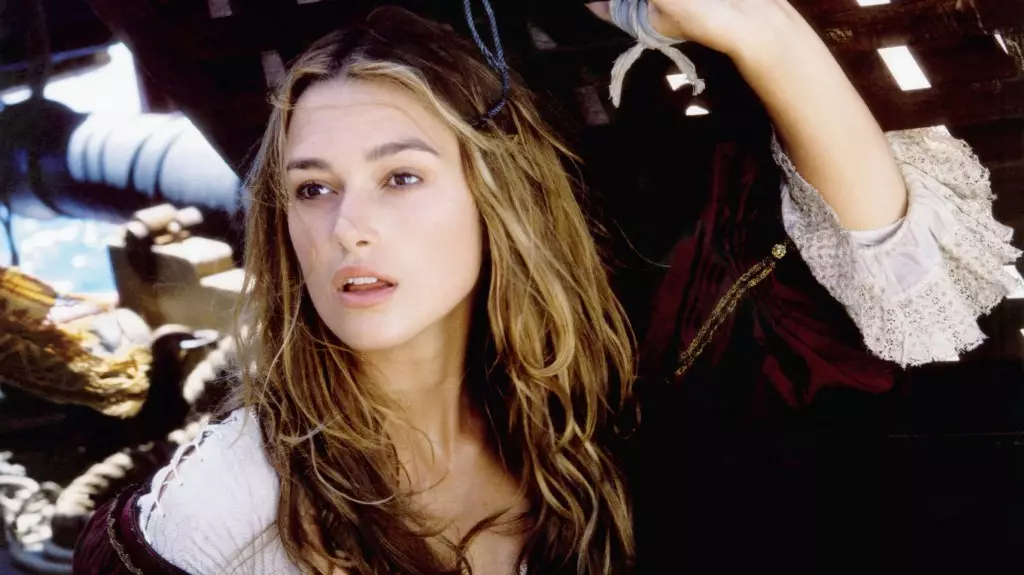Keira Knightley entered the entertainment industry at a remarkably young age, gaining instant recognition with her role in the iconic “Pirates of the Caribbean” films. Since that time, her journey has presented a fascinating juxtaposition between the rush of stardom and the mental toll that often accompanies it. In a recent interview with *The Times of London*, Knightley articulated her complicated relationship with fame, particularly during her formative years as a young woman in Hollywood. She acknowledged that while the initial wave of success positioned her for noteworthy opportunities, such as her acclaimed performances in “Pride & Prejudice” and “The Imitation Game,” it also subjected her to intense scrutiny and criticism, often materializing in the form of public shaming.
Knightley’s reflection on her past serves as a reminder that fame can be a double-edged sword. While it can lead to significant creative opportunities, it can simultaneously breed personal struggles that can leave lasting emotional scars. The public’s perception can often distort the reality of the individual, creating an ongoing battle between self-identity and public image.
In light of her experiences, Knightley has resolved to step away from franchise films, which are notorious for their demanding schedules and intensive public exposure. The actress expressed her unwillingness to participate in another high-volume, long-term project similar to the “Pirates of the Caribbean” series. “The hours are insane,” she remarked, emphasizing the burden of being under the constant spotlight while also juggling the constraints of filming. This decision embodies a broader trend among actors who seek more control over their careers, opting for projects that resonate personally rather than those that simply promise financial gain.
Knightley’s refusal to return to big-budget sequels speaks volumes about her desire to reclaim autonomy over her career and, by extension, her mental health. The pressure to maintain a certain public persona and adhere to the grueling demands of franchise filmmaking can be stifling for many performers. By turning her back on such projects, Knightley is making a conscious choice to prioritize her well-being, embracing roles that align more closely with her current desires and lifestyle.
The conversation about Knightley’s experiences is not complete without addressing the societal expectations surrounding body image, which have been a central theme in public discussions about celebrity culture. Throughout her career, Knightley has faced the harsh scrutiny of the media, often speculated to be grappling with issues like eating disorders. Reflecting on these experiences, she mentioned, “I knew I wasn’t,” referencing unfounded tabloid rumors about her health. Knightley’s comments shed light on the detrimental effects that public perception can have on mental health, particularly for women in the industry.
By sharing these experiences candidly, Knightley contributes to a necessary dialogue about body positivity and the importance of mental health awareness. Her narrative illustrates how public figures can confront, challenge, and navigate issues that many face but remain largely silent about. Her resilience serves as an inspiration, especially as it highlights the imperative need for a supportive environment for young actors confronting similar pressures within Hollywood.
Embracing New Adventures
Now, as she embarks on new ventures—most notably her upcoming role in the Netflix series *Black Doves*—Knightley represents a shift in her career trajectory. The six-part spy-thriller will feature her alongside Ben Whishaw, and the anticipation around this project marks an exciting chapter in her evolving narrative. The series represents not just a role but also her ongoing evolution as an actress and individual, reflecting her desire to engage in projects that allow for creative exploration, away from the franchise model that once defined her early career.
Keira Knightley’s reflections on her journey through fame, the pressures of franchise filmmaking, and her advocacy for mental health highlight the complexities faced by those in the public eye. As she forges ahead, it is evident that she is embracing her artistry on her own terms, consciously defining what success looks like in her life, all while encouraging others to engage in dialogue about the realities of fame, body image, and personal empowerment.


Leave a Reply